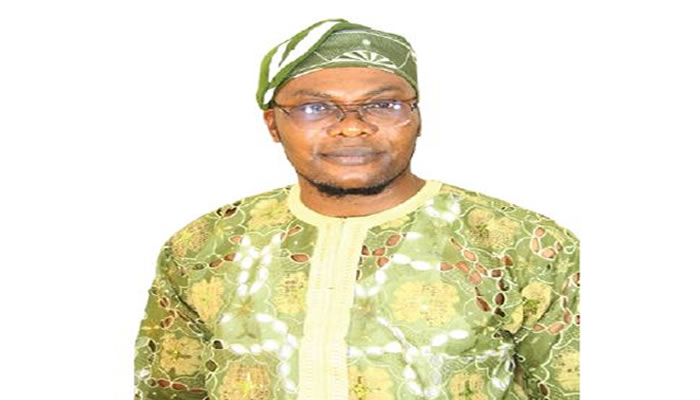
President of the Nigerian Association Maroc (Morocco), Pere Ageli, talks to FATTEH HAMID about the earthquake in Morocco, and how Nigerians are coping with the disaster
Some days ago, Morocco’s interior ministry revealed the earthquake claimed the lives of over 2,900 people. As a Nigerian living in Morocco, what is the current situation of things over there?
It was on Saturday at precisely 11:30 pm when buildings started shaking. The vibration was much and it was so intense that it was felt virtually in all the cities in Morocco. The vibrations lasted for about three minutes but it was a very scary experience. People ran out to know what was going on only to find that they didn’t get hit but the real devastation had happened in Marrakesh. As of today, the unofficial death toll we are hearing is about 10,000 even though the government isn’t putting that out.
Why do you think the death toll could be up to 10,000?
The epicentre of the earthquake is Marrakesh and Marrakesh is a tourism location, a state that is solely dependent on tourism and that’s where you have all the European, Western and African tourists. They go there. Also, the timing of the earthquake is crucial because when it struck, most people would have been at home relaxing and probably planning to go out later. So, I think the death toll is more than the figure (released by the government) and you know when things like this happen, instantly, you would not get the total number of victims. Also, a lot more people may still die later, as they are rescued from the rubble. Underneath the rubble, there’ll be dead bodies. That’s why we estimated 10,000 but it is way more than that.
Why do you think the Moroccan government is not putting out the actual figure?
I think it is only normal for the government to play down the figure of deaths because if you give out that kind of figure, tourists would be scared. Morocco is a tourism-based economy, agro tourism-based economy, and Marrakesh is solely tourism based and if the government gives out that kind of figure (10,000), it’ll discourage tourists and that would adversely affect the economy of Marrakesh, and Morocco, generally.
What is the estimated population of Nigerians living in Morocco?
We should be talking within the range of 5,000 Nigerians living in Morocco. Some haven’t been documented in our registers but from what we have that includes students, non-students, and legal migrants, we should be talking about over 5,000 Nigerians living here in Morocco.
Are there Nigerians who were affected by the disaster, injured or killed?
To the glory of God, we only have one Nigerian victim identified as Tina, who out of panic jumped down from a three-storey building during the earthquake and fractured her left leg in the process.
Where is she at the moment?
As we speak, she’s in a hospital receiving treatment. That is the only Nigerian victim that we have or rather, know of at the moment. Of course, there are other nationals of other countries who are victims, but for Nigeria, we have only one victim.
Before the earthquake, did the government issue an alert about an impending natural disaster?
Actually, the earthquake caught everyone unaware because we didn’t get any notice from the government that there was something amiss or that an earthquake was about to happen. So, it took everyone by surprise. We never knew and we can’t say that the government is to blame for the earthquake.
There is news that some people are still buried under the rubble. How true is this?
Yes, there are still people buried under the rubble. They are still down there waiting to be rescued and those that have been exhumed from the rubble are either dead or with serious injuries. They are taken to the hospitals to receive intensive and emergency care while the government is also doing its best.
Is the association certain that some Nigerians are not trapped under the rubble?
We are very certain that as of today (Wednesday, September 14, 2023), there is only one case of a Nigerian lady who jumped down from a building. She is the only recorded case of a Nigerian victim of the earthquake.
How did you verify that?
We have coordinators in all the cities where we have a large number of Nigerians. Just like in Casablanca, we reached out to the communities; we have the Yoruba community, Igbo community, Edo, Calabar, etcetera. We reached out to all the community heads to know if there was someone that was unaccounted for and they gave us accurate data after reaching out to them. Thus, I’m very sure that we only have one case of a Nigerian involved in the earthquake from the report I got from all the regions in Morocco, especially in Marrakesh where the disaster had more impact. All the other Nigerians in Marrakesh are okay; no one was involved and we thank God for that.
Is the association anything to assist victims of the disaster?
Yes, the association is doing all it can despite the resources; it has been participating in helping and assisting victims of the quake and Nigerians here (in Morocco). For example, the lady who fractured her left leg was rushed to a top-class clinic owned by the United Arab Emirates to receive treatment. That’s where she is and her injuries are being treated. We have volunteers from the associations who are with her in the hospital to assist her and attend to her needs.
Do you think some Nigerians living in Morocco are planning to leave the country following the earthquake or return to Nigeria?
For now, we don’t have any verifiable records that Nigerians are leaving Morocco because of the quake. There’s no way I can confirm that but I know that Nigerians are still here (in Morocco). There are no official plans to evacuate Nigerians from Morocco because of the quake. Morocco is a very good host country and we will not leave because there was a natural disaster. Moroccans suffered the biggest loss from this earthquake because most of the victims are citizens of the country. That tells you how bad it is already for them as a country. So, Nigerians won’t flee because of one case. I don’t think there will be a need for evacuation.
Why do you think many Nigerians are not considering returning home?
Well, I don’t think this (the earthquake) is enough to make Nigerians want to leave Morocco. It could happen anywhere; it could have been back home in Nigeria or in any other country at that; God forbid. So, I don’t think that it is enough reason for people to leave.
However, organisations have kept their hotlines open to assist victims of the earthquake. One only needs to call them to get the necessary assistance to locate a clinic that would take care of them. They have been doing that. We really appreciate the work of most of the non-governmental organisations over here.
Has the association received any communication from the Nigerian embassy in Morocco since the earthquake occurred?
The Nigerian embassy in Morocco has been wonderful. From the day the earthquake occurred, even as early as 3 am, I was on the phone with the ambassador who is in charge of the affairs of the Nigerian mission here in Morocco. We spoke and he was worried about what was going on and wanted to be sure that the Nigerians here were safe. You can imagine an ambassador calling at that time of the morning wanting to know the situation of things. And of course, the consular has also been wonderful. He made a direct call to the victim in the clinic to know her well-being. The ambassador and some members of the diplomatic corps also visited her. We are proud of the embassy here and the concern and help that they have shown on this issue.
Are Nigerians and other residents in Morocco worried that another earthquake might occur?
I don’t know but I think people are just scared and that is normal because we are humans and whenever such a huge disaster happens, people panic. Going to bed the next day, I was scared because I didn’t know what was going to happen. I didn’t know whether the earth was going to quake again or the buildings would collapse. There’s that fear, that apprehension; people are afraid that it might strike again.
Well, this earthquake has given us a lot of experience. Personally, this is the first time in my years of living to witness something like this and that is the same with most members of the association. So, we now have first-hand experience and we know the things we can do if such (an earthquake) happens again – in case someone is injured, who to run to, what to do, who to call, the government agencies in charge and all of that. I think we are now better prepared to handle another case, if it happens again.
What is the Moroccan government doing to assist the victims?
The Moroccan government is trying. One, the country is not rich but from the little, it has been ensuring that it helps everyone involved in this trying time. I’ll give it to them, from the little it has, it has been able to stand tall. The King of Morocco, Muhammed VI, had to return to Morocco immediately after the disaster struck, cutting short his medical trip despite being in intensive care. He had to leave his hospital bed and return home. If you monitor the news, you will see that he has been visiting the victims of the disaster, showing solidarity, showing compassion, showing empathy and that is what governance is all about. So, the king, the government and everyone concerned are rallying around to assist most of the victims. So, I think the government is trying its best to ensure that everything goes well.
How else is the Nigerian association collaborating to provide succour for victims of the crisis?
Well, due to the disaster, the plans we have as an association is to enlighten people, mass enlightenment of Nigerians on what to do and what not to do when there’s an earthquake, heavens forbid that. We do not pray for that to reoccur again but because it is a natural disaster, it can recur So, what the association is doing or has been is sensitising the people on what not to do. Considering the lady who jumped down from a building because of the vibration and intensity, we are telling Nigerians not to panic if there’s a recurrence. Maybe if we had had a sensitisation before this happened, she wouldn’t have jumped. That is why we are enlightening all the Nigerians in Morocco, and of course, assisting in helping the victims of the quake – Moroccans and other countries’ nationals.
The association is open to assistance. We would welcome assistance from every quarter; every organisation, government or anyone at all, especially towards our sister, Tina, who has a fracture. Whatever assistance we can give her would go a long way. We would also need assistance to move Nigerians staying in the far north of Morocco, in the border states with Spain and Algeria, and to enlighten them on what to do when there’s an earthquake.
Are there Nigerians who lost properties in the earthquake?
Concerning that, as far as our records show and from the information we gathered, no Nigerian lost property in the earthquake.
You stated that you felt the impact of the earthquake, what went through your mind at that time?
This was the first time in my life that I ever witnessed the vibrations of an earthquake. The vibration was something I’ve never felt before and it was a very scary experience. It was perhaps the scariest experience of my life because buildings were shaking looking as if they were going to collapse. The good thing was that it didn’t take a long time. It happened for about three minutes but those three minutes were the scariest of my entire life. That was how much the impact gripped me. I live in a storey building and I felt so much impact. So, I wonder how people living in multiple-storey buildings or skyscrapers would have felt; it would have been a lot more than what I felt.
Did you immediately know that it was an earthquake when buildings started shaking?
Initially, I didn’t understand what was happening until I ran outside and saw a crowd comprising families, fathers, mothers, women and babies crying. At that time, it was usually very difficult to find families, especially Moroccan women, outside. That was when it dawned on me that it was an earthquake and I became scared. Initially, I wasn’t scared until reality set in. We all had to stay outside until 4 am because going back inside, going back to bed or finding sleep became a problem because I didn’t know whether it would strike again. It was scary.
Did you feel you were not going to survive the quake when it happened?
Yes, because I felt I would not see the next day especially when I heard about the magnitude of the damage done by the earthquake in Marrakesh. Marrakesh is about 250 kilometres from Casablanca. When I called my friends in places like Rabat, they said the same thing. The Nigerian embassy is in Rabat and not in Casablanca and that is why we appreciate the Nigerian embassy for taking Tina’s details and paying for her passport because that’s not an easy thing to do.













